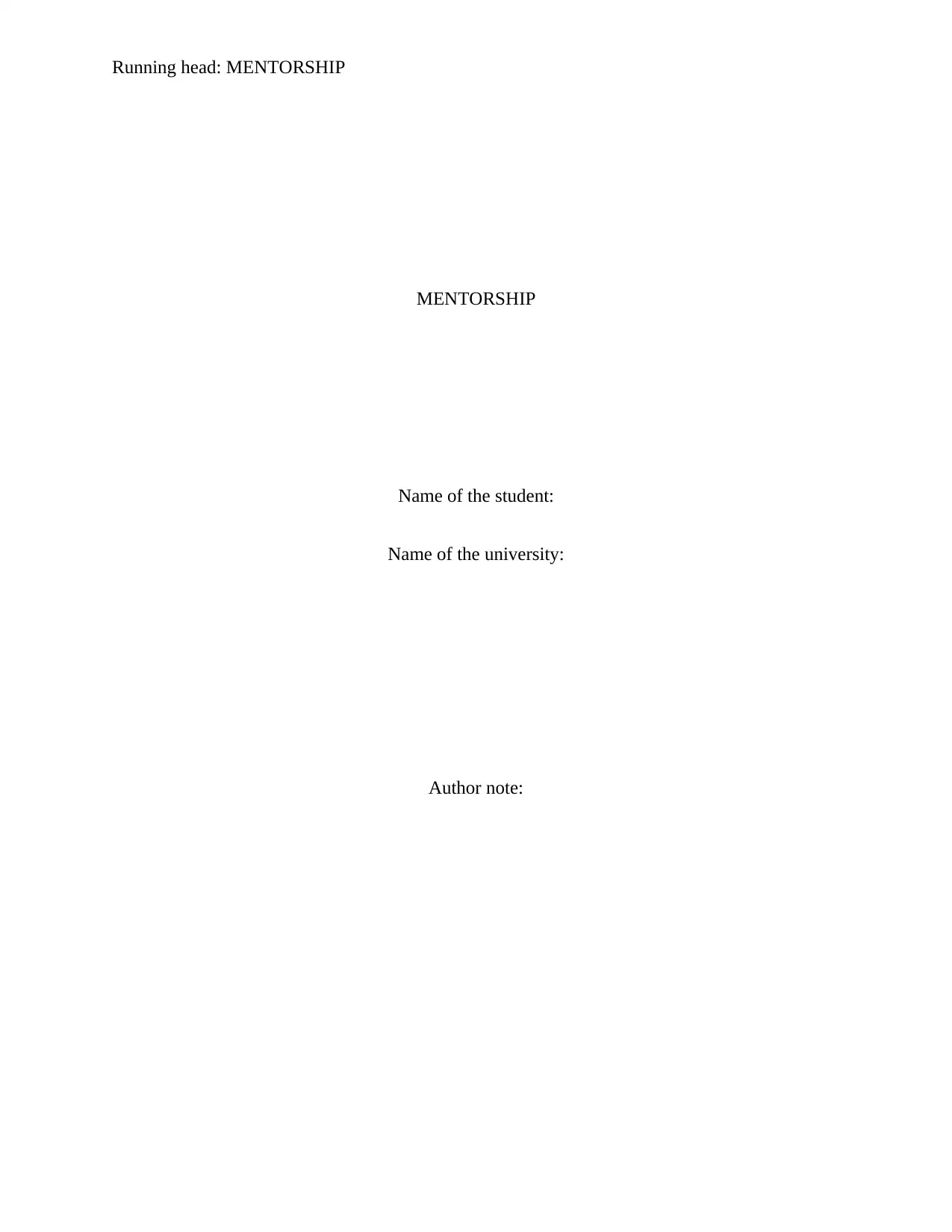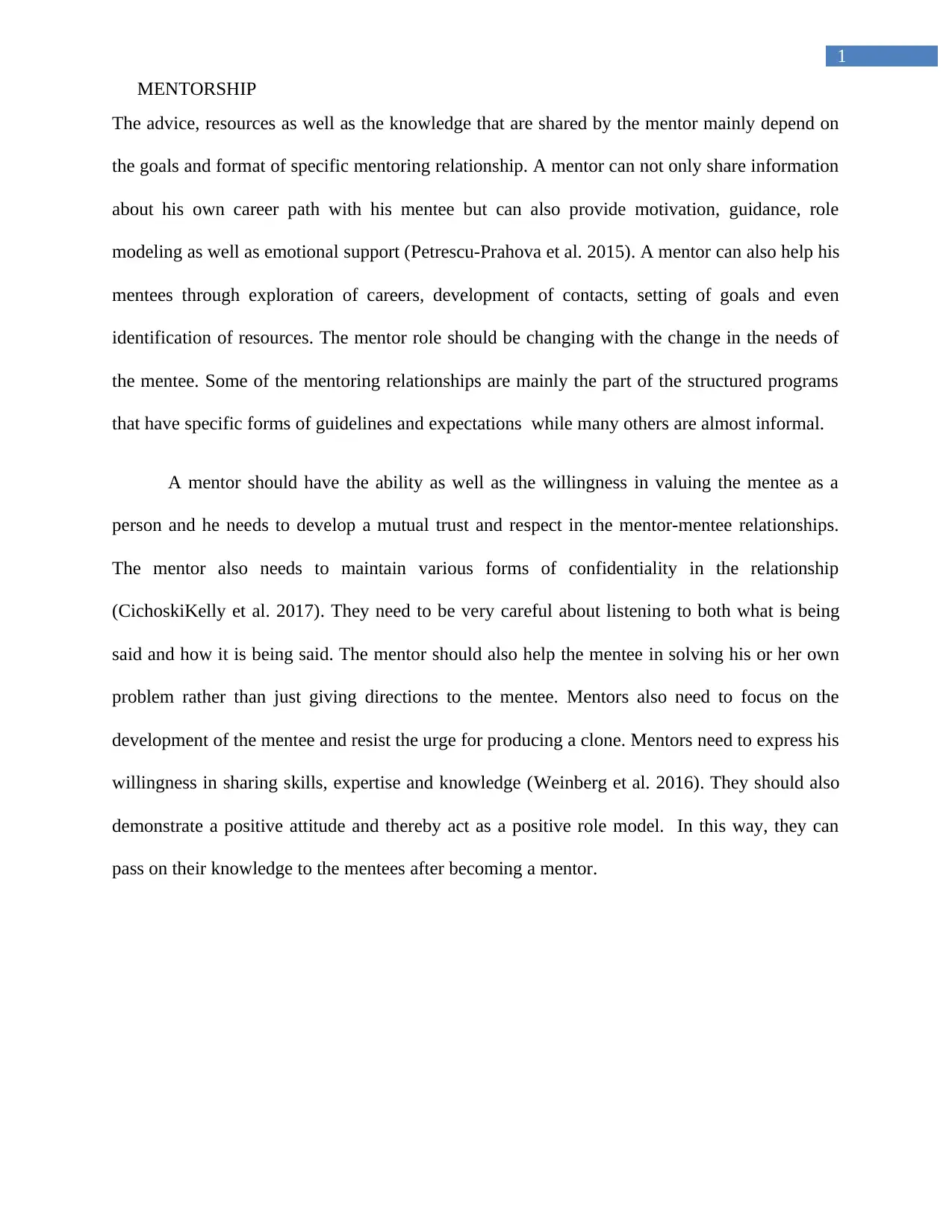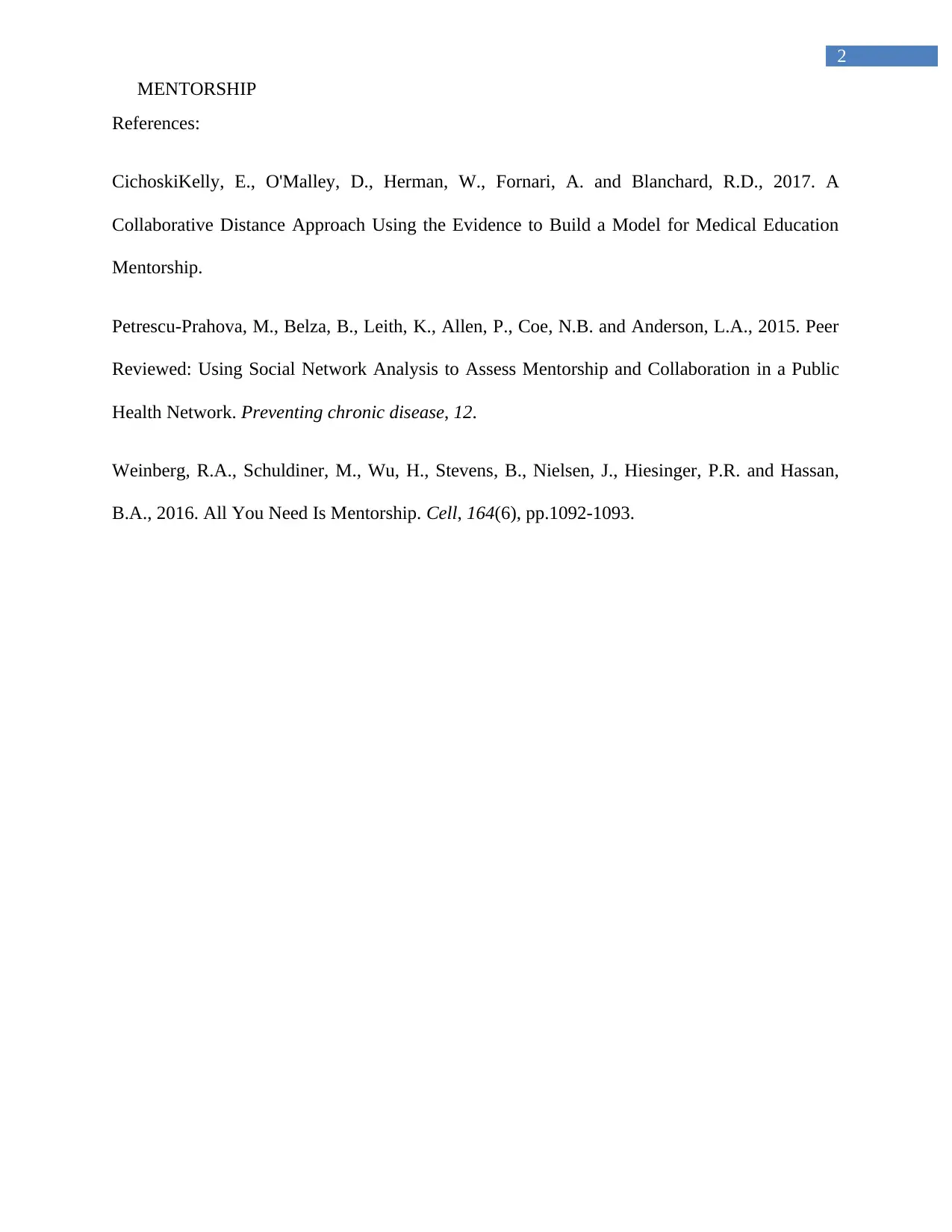Mentorship in Leadership: Fostering Growth, Trust, and Knowledge
VerifiedAdded on 2023/04/20
|3
|466
|63
Essay
AI Summary
This essay examines the critical role of mentorship in professional development, highlighting how mentors provide advice, resources, and knowledge to their mentees. It emphasizes that effective mentorship involves sharing career path insights, motivation, guidance, role modeling, and emotional support. The essay discusses how mentors assist mentees in career exploration, contact development, goal setting, and resource identification, adapting their role to meet the evolving needs of the mentee. It underscores the importance of trust, respect, and confidentiality in mentor-mentee relationships, as well as the mentor's ability to listen actively and help the mentee solve problems independently. Furthermore, the essay stresses the need for mentors to focus on the mentee's development, share expertise willingly, and act as positive role models, ultimately passing on valuable knowledge. Desklib offers this essay and many other resources for students.
1 out of 3







![Clinical Mentoring Plan for Mental Health Nursing - [University Name]](/_next/image/?url=https%3A%2F%2Fdesklib.com%2Fmedia%2Fclinical-mentoring-plan-mental-health-nurses_page_2.jpg&w=256&q=75)


![[object Object]](/_next/static/media/star-bottom.7253800d.svg)